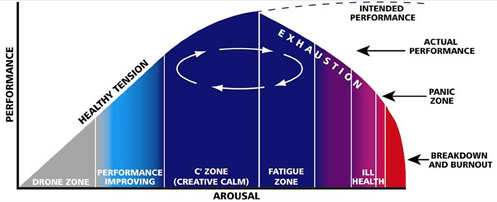In mid-June, my family and I are heading up the Queensland coast on the way to Cape York.
I decided that I wanted to hold a seminar for local veterinary practices as they don’t have the same opportunities for CPD as we do in the capital cities. This is also an opportunity for a the whole team to be involved.
I decided to talk about stress, resilience and wellbeing as I have more requests for these topics when speaking and coaching.
Some of the key findings from the recent Merck Animal Health Veterinary Wellbeing Study are
- about 1 in 20 veterinarians are suffering from serious psychological distress
- only half of the veterinarians with serious psychological distress are seeking help
- veterinarians experience slightly lower wellbeing than the general population
I have been a veterinarian for nearly 20 years and I get it. I remember how tough I found it in the first few years. I remember what it was like when my kids where young, trying to juggle a family and a career. I remember how I would go home and worry about cases. I couldn’t sleep well as I couldn’t switch off.
I have seen the progression of the profession with respect to the improvement customer experience and communication and how we do things so much better than we did when I first graduated.
Clients have access to information at their fingers tips but need our expertise and education to help decipher what is right for their pet, although they may not agree with what their ‘research’ has shown.
While in a lot of cases, veterinary practice is so much better than when I first graduated, it can also be more stressful and have more pressure.
I started talking about stress in practice years ago when I was asked to do speaking engagements on compassion fatigue and burnout. The more I learned about stress, the more I realised we have got it wrong. We work hard and long and hit repeat over and over. We don’t need holidays, asking for help is a sign of weakness, we must be everything to everyone, etc, etc…. We have the attitude that we can do it and we can but over time at what cost? The fatigue and exhaustion from long days, high demand work and the high caseload. Some veterinarians can’t switch off so their body is always ‘on’. We know how to put on the smile and put our needs aside. This contributes to chronic stress which is where the problem begins. Consistent, high levels of stress become chronic stress that has so many effects on our mental, physical and emotional health.

It doesn’t have to be this way. Start to listen to your body. What causes you stress? Remember that 1 person’s excitement may be another person’s stress.
Once we are aware of what contributes to our stress, we can do something about it. For some stressors, we have no control over them, however, we have control over how we react and respond. Being able to recognise where you are in the stress curve and how to bring yourself back to the eustress side of the curve is important. This is the left side of the curve.
I love talking about resilience and wellbeing. An absence of ill health doesn’t mean your healthy and the same is for your mental wellbeing. An absence of a mental illness doesn’t mean you are brain fit, emotionally fit or flourishing. We need to make time to focus on the 6 elements that underpin our wellbeing and this is what I will be discussing in the seminar.
The great thing about stress, resilience and wellbeing is that they are skills that can be learned. They aren’t fixed. You can influence your stress levels, increase your resilience and wellbeing.
To find out more about the seminar, dates and locations: Stress, Resilience and Your Wellbeing Seminar
The flyer: Stress, Resilience & Your Wellbeing Seminar Flyer
Natasha





